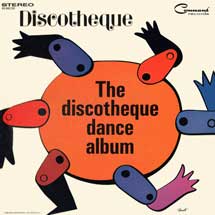Friday, January 21, 2011
We’ve Moved!
All of these album reviews and more can now be found in this blog’s new permanent home at Jive Time Records. To read our latest reviews along with brand new sections including Music Guides, Album Cover Galleries, and more, click here!
Tuesday, January 18, 2011
Roxy Music “Stranded” (1973)
Stranded was Roxy Music's first album after the departure of Brian Eno - who was undeniably the band's driving force when it came to experimental avant-garde rock. No doubt the change in personnel lost the band a number of acolytes but there are enough traces of his influence remaining to make this the finest album the band ever released and, in my eyes at least, something of a classic. The introduction of Eddie Jobson's woodwind rather than Eno's spacey loops signalled a sea change in the band's approach with Ferry using this smoother sound to promote himself as the ultimate suave womaniser who thought he could seduce with a mere twitch of his tonsils. And, on some of these tracks, that doesn't sound too farfetched. With the passage of time it becomes ever more apparent that Roxy Music consisted of some truly excellent musicians. Phil Manzanera's guitar, Andy Mackay's sax and, in particular, one of the most underrated of drummers, Paul Thompson, all deserve equal credit even though they couldn't compete with Ferry's persona. The album contains eight tracks all of which are praiseworthy but special consideration should be given to "A Song For Europe", "Amazona", "Psalm" and the tour-de-force "Mother Of Pearl". –Ian
Labels:
Album Reviews,
Rock
Monday, January 17, 2011
Repost: X “Under The Big Black Sun” (1982)
A record that sums up Americana as well as any other. “Under The Big Black Sun” is proof that X was as good of a country band as they were a punk band. Rockin’, rollicking, dissonant and dizzying, this record is a forty-five minute bender. Bookended by “The Hungry Wolf” (an superblast of syncopated yell along) and “The Have Nots” (possibly the best drinking song ever), this is the soundtrack to an unencumbered night out. –Cameron
Labels:
Album Reviews,
Punk and Post-Punk,
Rock
Saturday, January 15, 2011
Elton John “Captain Fantastic and the Brown Dirt Cowboy” (1975)
Strangely paradoxical how Elton John is now fiercely, almost neurotically, obsessed with protecting his personal life, yet in 1975 released Captain Fantastic and the Brown Dirt Cowboy which purported to tell the story of his and Bernie Taupin’s struggle for recognition. Equally interesting, given his sexual ambivalence, is the unspoken story behind such songs as "Someone Saved My Life Tonight" and "We All Fall In Love Sometimes". Interesting as all that is, the most important factor to remember about this album is that it’s an absolute cracker. Everything seems to have come together at the right time to create a near classic. This is Elton's finest backing band. Davey Johnstone, Dee Murray, Nigel Ollson and Ray Cooper may have come and gone throughout his career but there can be no doubting he should have stuck with them. The artwork for the album by Alan Aldridge is superb and certainly one of my favorite covers. And the songs, because of the stories behind them, have power and poignancy. But, I said this is a near classic and that's why reviewing is a personal business. Others may like "Tell Me When The Whistle Blows" and "(Gotta Get A) Meal Ticket", I don't and that's were the album falls down. Still, the Captain and the Cowboy done good. –Ben
Labels:
Album Reviews,
Rock
Wednesday, January 12, 2011
Charles Mingus “Mingus Ah Um” (1959)
Mingus Ah Um is almost absurdly energetic. The pure joy of "Better Git It in Your Soul" is some of the most exciting, exuberant jazz I've ever heard, with the gospel shouts and calls, and the monumental tempo. Ah Um reminds me of Raymond Scott, as this outpouring of manic sound that seems perpetually on the brink of chaos, but always tightly controlled. I feel like I lack the lexicon to write about jazz, but I know this is some invigorating, essential music that never flags and serves as an excellent riposte to anyone who has the temerity to say that jazz is boring and/or wanky. I do prefer the first side to the calmer second side (or the back half of the album, anyway I don't own the LP), but it's all pretty stunning. –Jared
Labels:
Album Reviews,
Jazz
Thursday, January 06, 2011
Hawkwind “Space Ritual” (1973)
Rock made interstellar matter. A blessed stars collision makes possible this weird, antisocial record. A quite rancid and demodé spot that doesn't resemble anything done before or after. A crash between the cave-like distortion and the outer space, mystic sounds. A search for God based on primitive rites. Pagans worshipping Nature, Fire, Elements, Cosmos. Ancient divinities, entities such as Sun Ra or Blue Cheer. A true astral projection, an initiation turn down to the depths of the Earth and up to the confines of the Universe. Excessive, saturated, vehement, foul and whimsical. At the antipodes of simplicity. And yet, it sounds basic and direct. A gloomy journey towards light. Guitars buried deep down in the mix, foregrounded bass and vocals and some occasional trumpets sounding like distant low-frequency signals. I've never found anything like this. An artificial album. A touched-up live which is a pure celebration of experience. It's both YES and NO. An endless curl. –R
Labels:
Album Reviews,
Psych and Prog
Tuesday, January 04, 2011
Bob Welch “French Kiss” (1977)
Following a brief affair with heavy rock on the pair of Paris releases, Bob Welch puckers up and lands a solo soft rock triumph on French Kiss. While some of that guitar crunch remains, it and Welch's trademark baked goods vocals are wrapped in silky disco strings and dance floor beats throughout the mesmerizing French Kiss. The LP finds Welch as a post-hippie playboy on the prowl through irrepressible entries like the alluring "Ebony Eyes," "Hot Love, Cold World," and the Fleetwood/McVie/Buckingham assisted infatuation of "Easy to Fall" and "Sentimental Lady," originally cut for the Mac's Bare Trees. Elsewhere the disco-rockin' "Carolene," funky "Outskirts," vintage Welch space-drifter "Danchiva" and sunny Claifornia dreamin' duo of "Lose my Heart" and "Lose Your Heart" only serve to solidify the album's appeal - rare is the seventies softie that never dips in quality, all while delivering the lounge lizard magic in such spot-on fashion as on French Kiss. –Ben
Labels:
Album Reviews,
Rock
Sunday, January 02, 2011
Buzzcocks “Another Music in a Different Kitchen” (1978)
There are some albums which will never age and remain relevant no matter what the prevailing musical trends; Another Music In A Different Kitchen is one such album. Many predicted the demise of the band following the departure of founder member Howard DeVoto but this magnificent album proved the doom-mongers wrong. The Buzzcocks' magnum opus is not punk but brash rock and roll with pop overtones couched in the candid language of the day. It carries no pretensions and refuses to acknowledge any inspirational influences. This is simply four blokes having a good time. From the buzz-saw introduction of early single "Boredom" which both opens and closes the album but doesn't actually appear in its entirety, this is a quite breathtaking selection of songs but, in my opinion, side two is where all the nuggets are to be found. The brilliant jagged guitar that ranges throughout "Fiction Romance", the driving bass/guitar that punctuates the chorus of "Autonomy", the desperate, manic vocals which feature on "I Need" and the devastating drumming which rolls through "Moving Along With The Pulsebeat" and is one of the few occasions a drum solo can claim to be more than window dressing - all important considerations when understanding what makes this type of music so powerful. A true classic of the punk era without being a punk album. –Ian
Labels:
Album Reviews,
Punk and Post-Punk
Subscribe to:
Posts (Atom)











